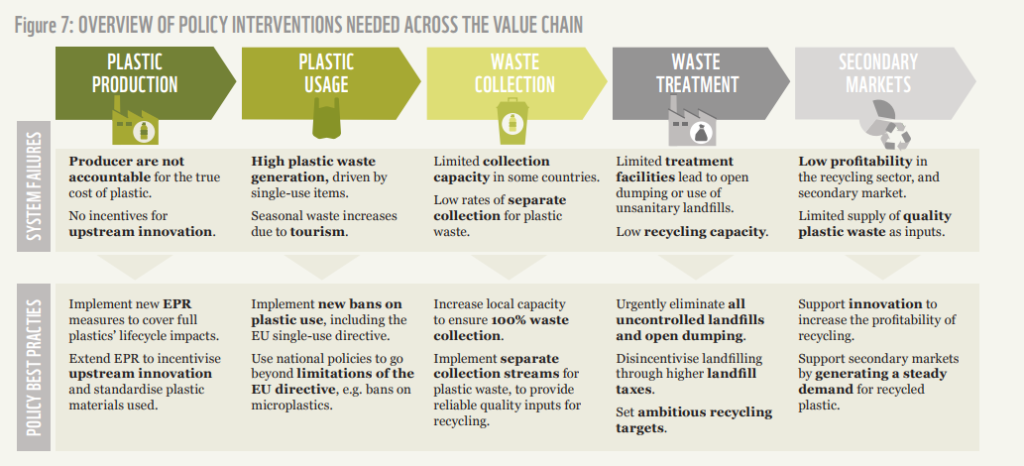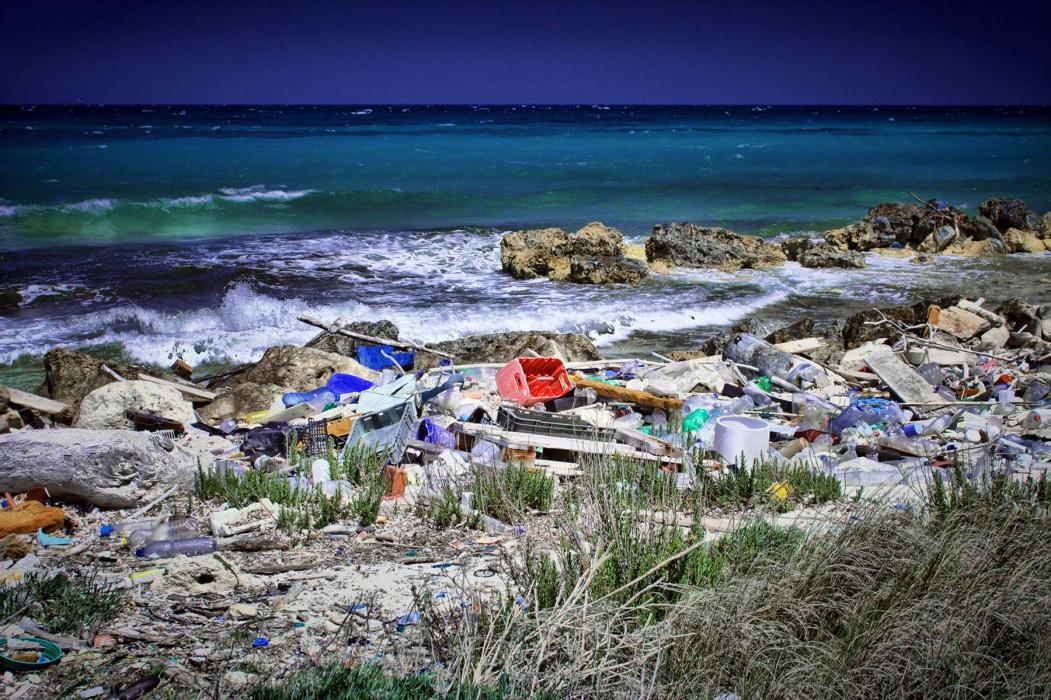Dalberg uses cookies and related technologies to improve the way the site functions. A cookie is a text file that is stored on your device. We use these text files for functionality such as to analyze our traffic or to personalize content. You can easily control how we use cookies on your device by adjusting the settings below, and you may also change those settings at any time by visiting our privacy policy page.
Plastics pollution in the Mediterranean is pervasive today and represents 95% of the total waste in the open sea, ocean floor, and beaches. Europe is the second biggest global producer of plastics pollution in the world after China, and in Europe over a half million tons of plastic enters the Mediterranean every year, which is equal to dumping 33,800 plastic bottles into the sea every minute. Without reducing plastics waste in the Mediterranean total plastics pollution levels are expected to quadruple by 2050.
Dalberg co-authored a 2019 report on plastics pollution, ‘Stop the Flood of Plastic: How Mediterranean countries can save their sea’. In addition to sharing the scope of the challenge, we detailed the root causes of the issue, highlighting the policy interventions needed across the plastics value chain.
Plastics pollution dominates the headlines, but a clear picture of how and why this problem emerges is hard to capture. A recent WWF report co-authored with Dalberg attempts to address this challenge by both quantifying the problem and suggesting an innovative approach to country-by-country management.
The report clarifies how much plastic is leaked into the Mediterranean Sea, through which channels, and what we can be do to minimize plastic pollution in the ocean. Every year, 570 thousand tons of plastic enters Mediterranean waters. This is equivalent to dumping 33,800 plastic bottles into the sea every minute. While alarming, these statistics are too broad to motivate individual actors to change.
To help governments and industries get specific about the impact of plastic pollution, Dalberg created a plastics lifecycle view of the challenge designed to help inform policy recommendations. We have charted a clear, country-by-country path to reducing plastics waste, viewing plastics as a lifecycle, with many touchpoints from manufacturing to disposal, we have charted a clear, country-by-country path to reducing plastics waste.
We started with identifying the components of the lifecycle, including production, usage, and waste management. We then estimated the magnitude of the problem at each step, for each country included in the study. We used what we learned to shape recommendations designed to help inform policy priorities related to plastics waste reduction in the Mediterranean.
The study’s findings highlight the fact that each step of the plastics lifecycle is an opportunity to reduce our impact on the environment. Cutting plastic consumption remains a prerequisite to reduce the region’s unbearable amount of waste. But the zero-waste model for the Mediterranean also includes minimizing plastic use in products and ensuring a fully efficient recycling and reuse system. Importantly, every country has a distinct set of levers to pull to shift the tide on plastics pollution.

Taking a lifecycle approach to plastics builds the evidence base to make each country’s incentives more effective. We took a comprehensive view in measuring the impact of plastic use and production, including energy consumption, CO2 emissions, and economic impact on fisheries, tourism, or shipping. This report also matches the challenges to policy responses and develops and develops tailored recommendations for each country studied based on their leakage profile. This could serve as the basis for other countries to build their approach to plastic waste.
When it comes to reducing plastics waste, one commonality exists across all Mediterranean countries: the way incentives are currently set up along the plastic lifecycle is an obstacle to improved plastics management. While upstream actors have the most potential to impact plastics waste down the line, they are typically the least incentivized to do so, as they do not bear the social and economic cost of pollution.

On the other hands, downstream actors, such as small municipalities on the Mediterranean shores, have less ability to reverse the effects of plastics pollution, but currently bear most of the social and financial cost. For instance, the tourism industry around the Mediterranean loses up to €268 million from plastic pollution, mainly in cleaning costs.
To learn more about the issue and its possible solutions, you can read the detailed report, “Stop the flood of plastics: How Mediterranean countries can save their sea” to learn more about plastics pollution and viable solutions






